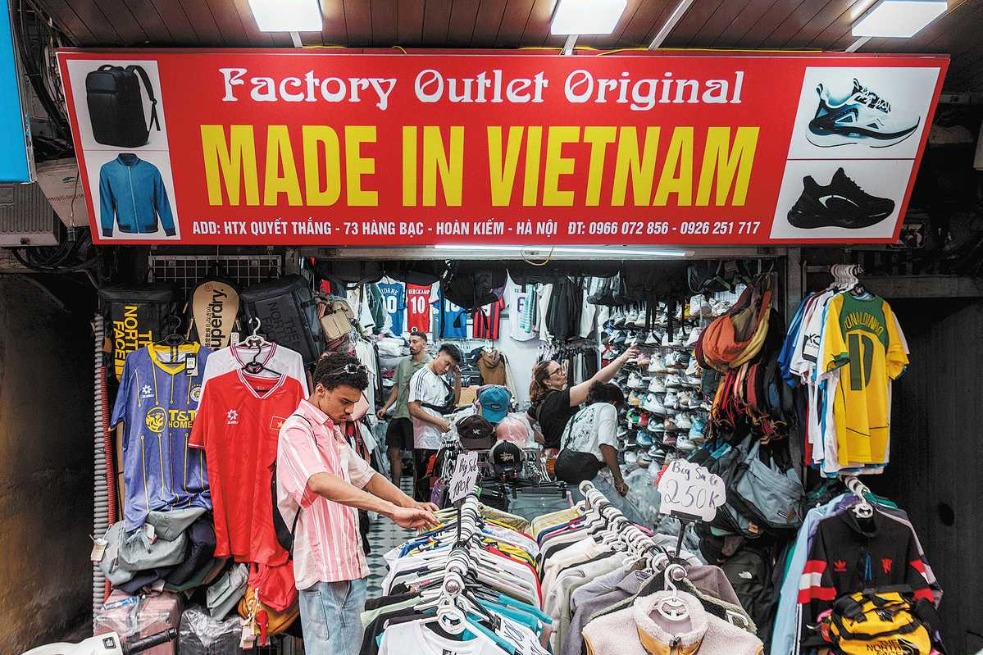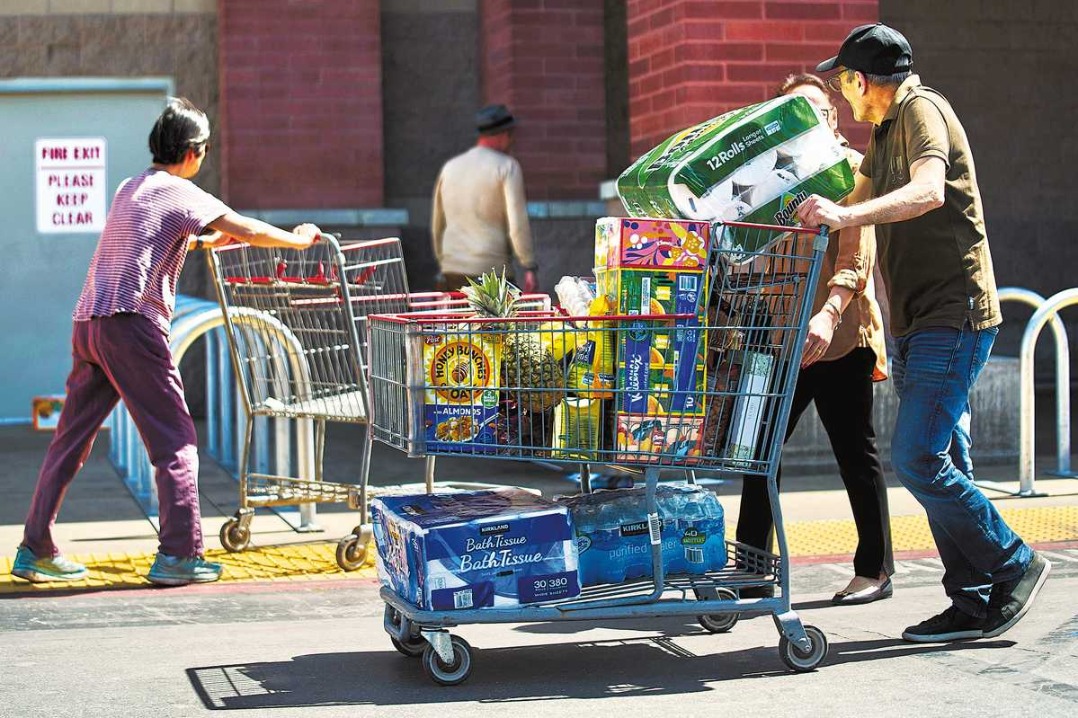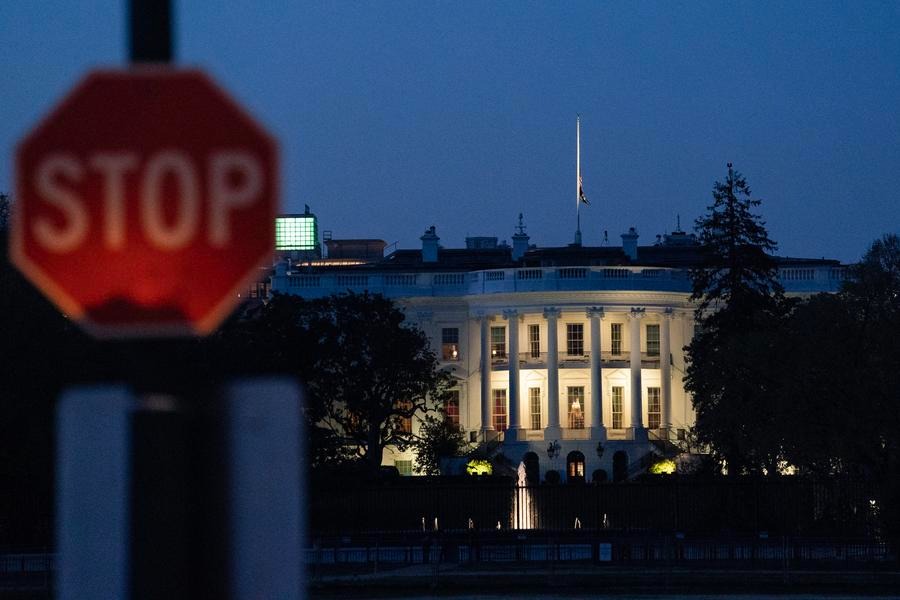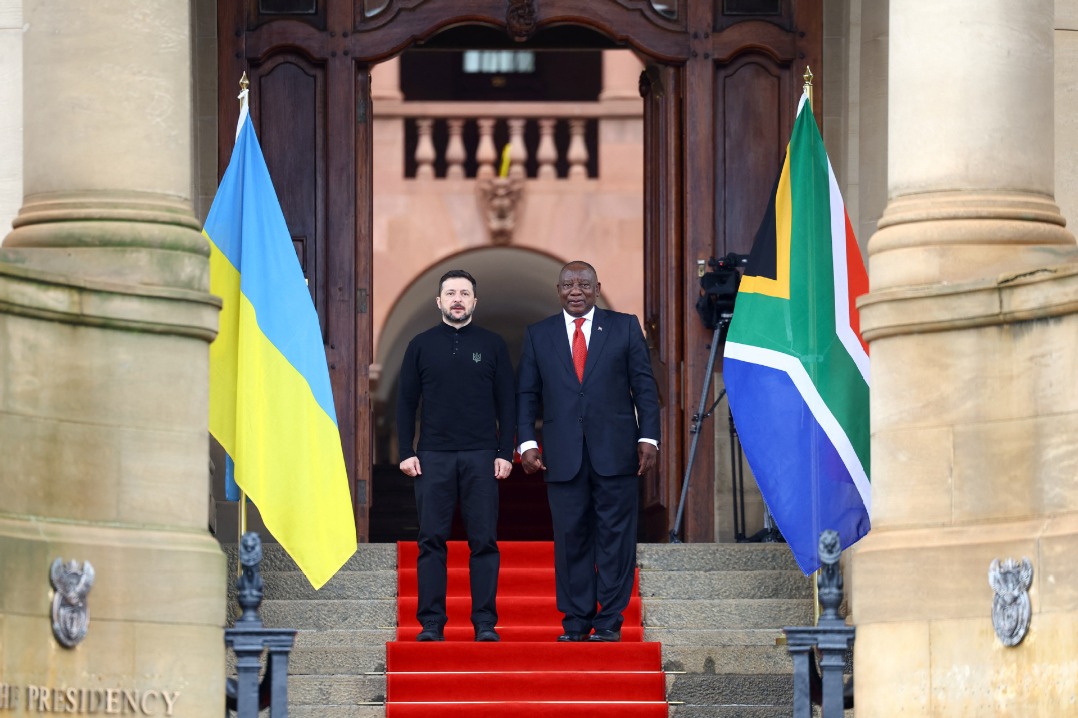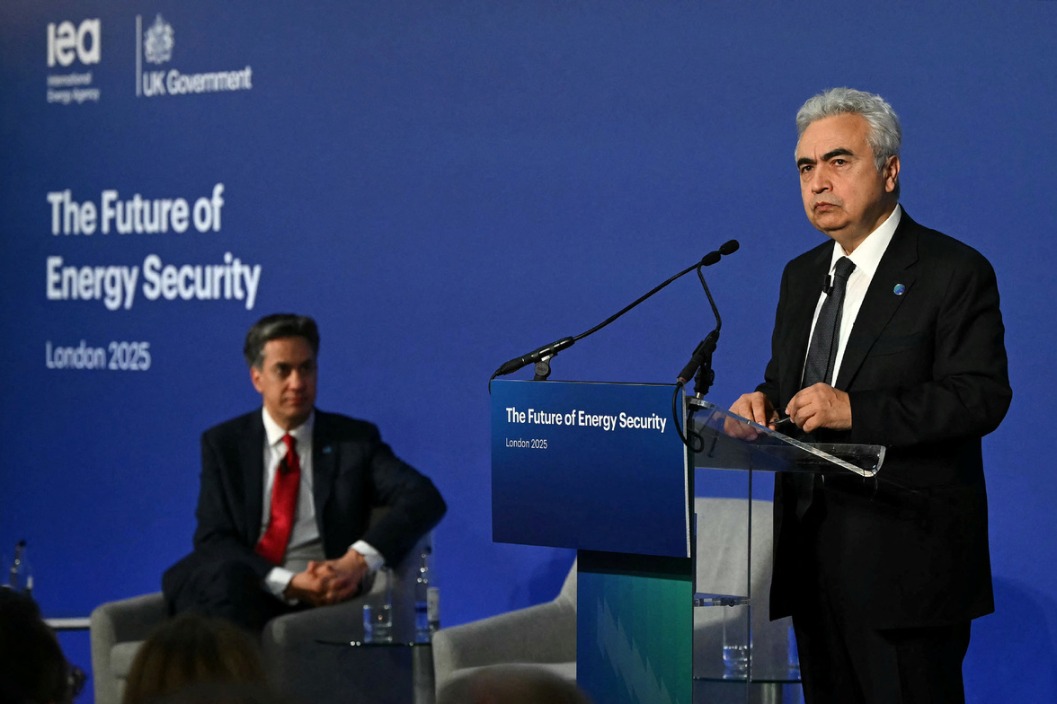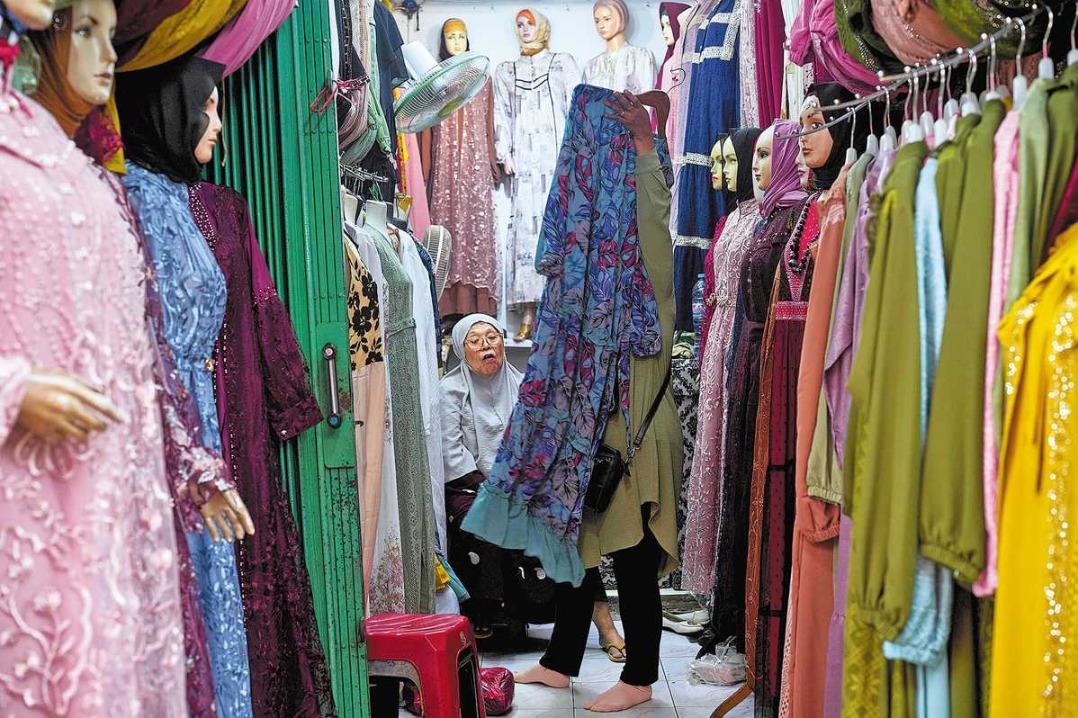Caution urged as Vietnam starts levy talks

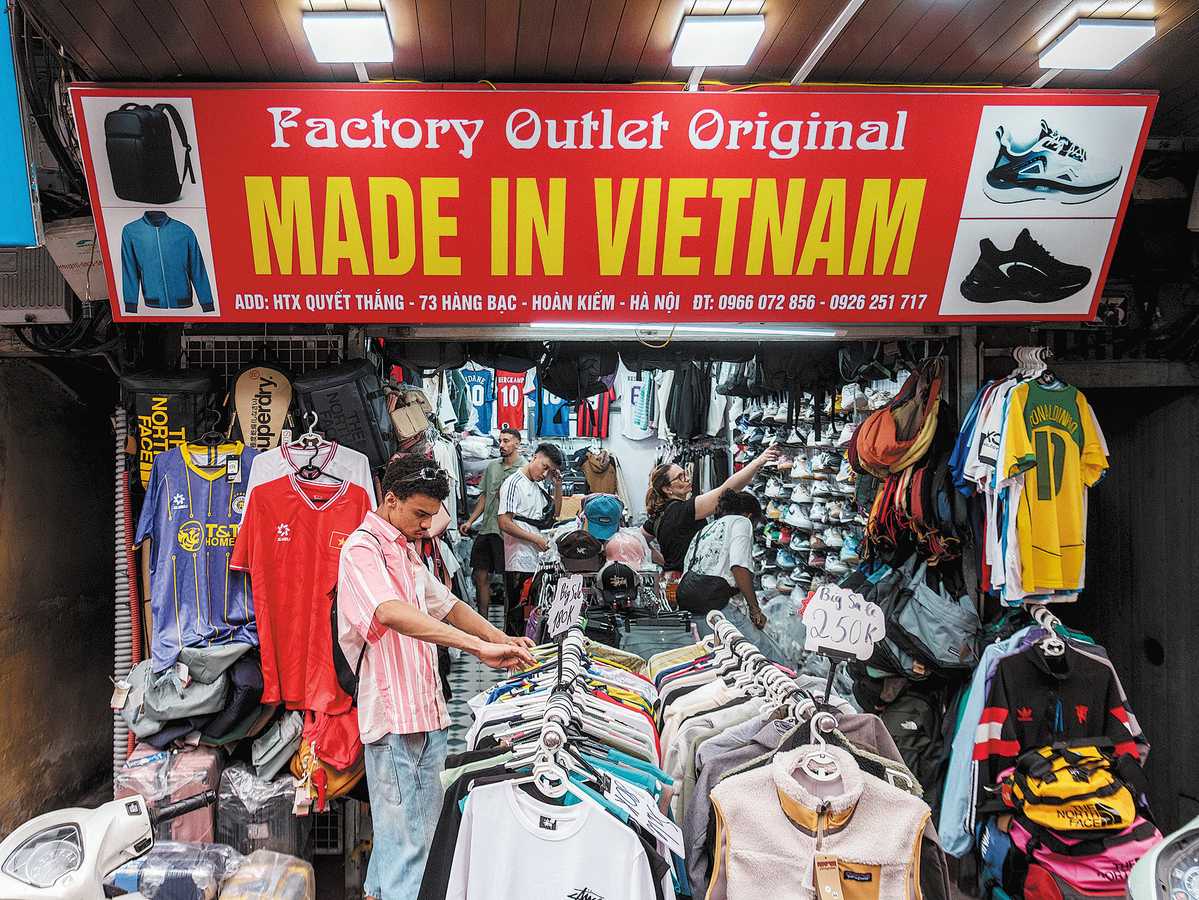
Vietnam has officially launched negotiations with the United States on bilateral economic and trade issues, as significant US tariffs of 46 percent threaten its economy.
But experts urged the Southeast Asian country to exercise caution and not to rush to reach an agreement because of uncertainties in US tariff policies.
Talks began with a phone conversation between Vietnamese Minister of Industry and Trade Nguyen Hong Dien and US Trade Representative Jamieson Greer on Wednesday evening, the Vietnam News Agency, or VNA, reported.
In the phone conversation, Dien, who heads the government's negotiation team, said Vietnam stands ready to address US concerns and work together to find mutually beneficial solutions based on the principle of harmonized interests and shared risks, the VNA reported.
The so-called "reciprocal tariffs" on imports from Vietnam are currently suspended for 90 days until July.
Adam McCarty, chief economist at consultancy Mekong Economics, told China Daily that Vietnam should exercise caution.
Though Vietnam needs to be among the first to initiate trade negotiations with the US to mitigate the impact on its economy, he said it should not rush to reach an agreement or offer too much, as there are many uncertainties in the US tariff policies.
McCarty said things will change quickly over the next few weeks, and it will soon be clear whether the US will back down on the tariffs, as US President Donald Trump faces criticism within the country over his tariff hikes.
The phone conversation came after a directive from Vietnamese Prime Minister Pham Minh Chinh that urged ministries, especially the negotiation team, to thoroughly prepare for talks with the US.
"The goal is to ensure trade between Vietnam and the US remains fair and sustainable, without complicating issues, affecting other international agreements, or disrupting other markets," the VNA reported.
In an official dispatch signed on Tuesday, Chinh instructed the Ministry of Industry and Trade to fully exploit Vietnam's 17 existing free trade agreements, or FTAs, and expedite ongoing negotiations.
Chinh also said the ministry must initiate talks on new FTAs with potential markets.
Considering the sheer size of US-bound exports to Vietnam's total exports, McCarty said the short-term benefit of expanding the free trade agreement would be limited.
However, he said he expects to see tangible economic gains in the long run if those agreements can address nontariff barriers and promote open and win-win trade cooperation.
The US is Vietnam's biggest export market. In 2024, Vietnam's goods trade with the US was an estimated $149.6 billion, according to data from the Office of the United States Trade Representative.
The US goods trade deficit with Vietnam was $123.5 billion, an 18.1 percent increase over 2023, making it an eyesore to Trump.
Observers expect the tariffs, if they become effective, will be a huge shock to businesses and have an extensive impact on Vietnam's economy.
Vietnam's trade surplus with the US comprises nearly a third of its $476.3 billion GDP, so Hanoi must tread carefully to safeguard its economic gains, said Hoang Thi Ha, a senior fellow and co-coordinator of the Regional Strategic and Political Studies Programme at the ISEAS-Yusof Ishak Institute in Singapore.
"Unlike China and some US allies, Vietnam has little room for retaliation if Trump levies high tariffs on its exports," Ha wrote in an article on the institute's Fulcrum commentary website on Tuesday.
"This has intensified the urgency to diversify Vietnam's export markets beyond the US."
Pursuing an absolute trade balance with the US is neither realistic nor desirable, Ha said.
She said a more strategic response for the Vietnamese government and business is to drive bold economic restructuring for long-term competitiveness and resilience, upgrading its position in global value chains.
kelly@chinadailyapac.com
















